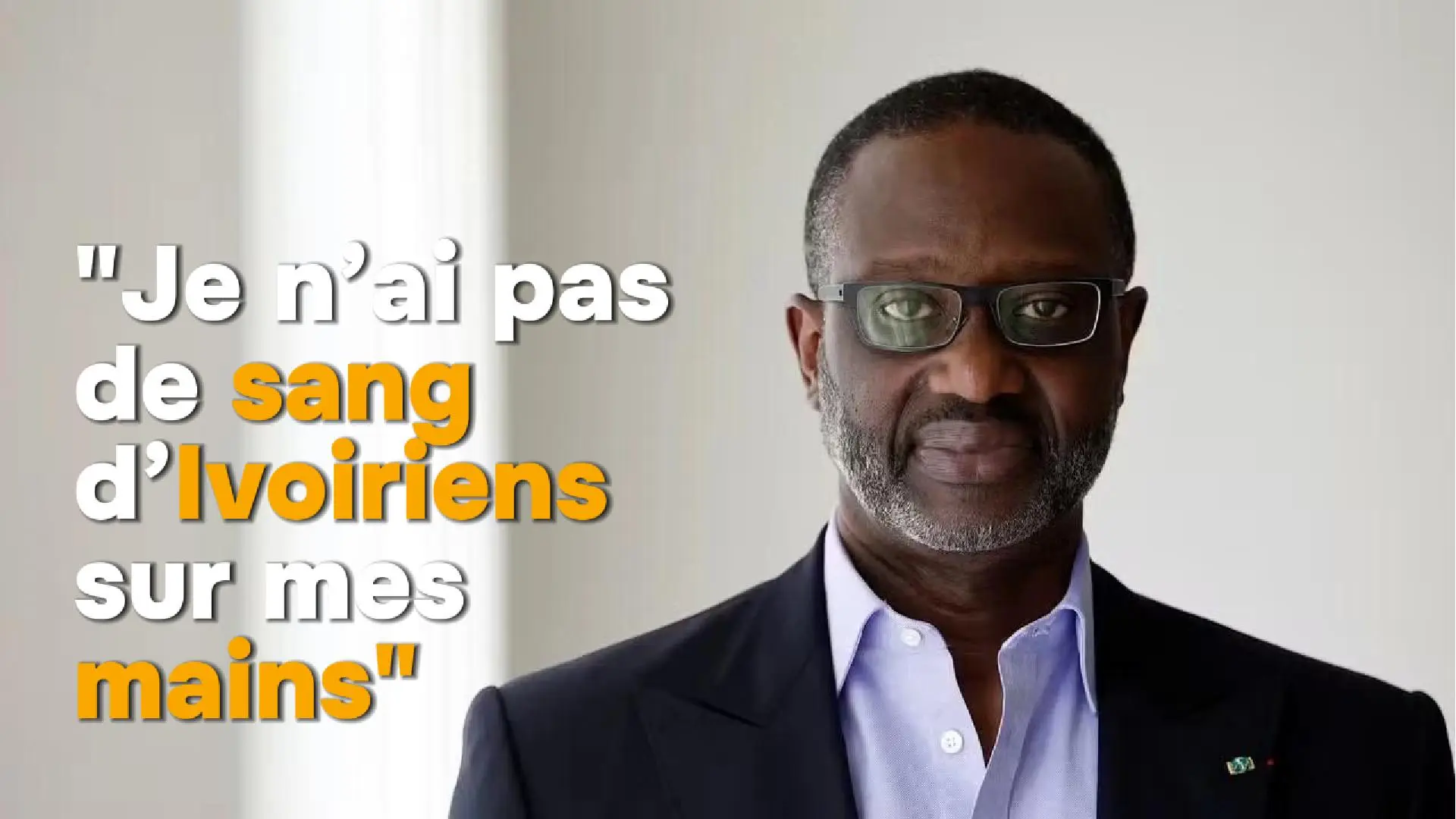Tidjane Thiam at RHDP: “I have no Ivorian blood on my hands” (video)
In a lengthy speech delivered to his supporters, Tidjane Thiam vigorously responded to attacks from the Rally of Houphouëtists for Democracy and Peace (RHDP), particularly on the issue of his nationality. Without mincing words, the PDCI president denounced the accusations against him and made a harsh indictment of the current governance in Côte d’Ivoire.

SUMMARY
Having remained silent since his final exclusion from the electoral list in Côte d’Ivoire, Tidjane Thiam has finally broken his silence. Before his supporters, he presented himself as a man familiar with challenges and expressed confidence in his ability to overcome obstacles. “I am 62 years old. This isn’t the worst situation of my life,” he said, while asserting that his exclusion from the electoral list was no surprise. For him, these difficulties only confirm that his fight is on the right track.
Condemning the questioning of his Ivorian nationality, he stated that he learned the national anthem at the age of four, well before he learned to read or write.
“Maybe one day God will allow me to ask some of those who say I am not Ivorian to sing the national anthem with me.”
In an offensive stance, Thiam invited his opponents to abandon personal attacks and review their 15 years of governance. According to him, the main failure of the regime lies in values such as human rights violations, restricted fundamental freedoms, pressure on unions, and the instrumentalization of justice… He denounced a system that he says criminalizes peaceful protest and stifles freedom of expression.
A clear vision of democracy
Referring to international rankings, notably from the V-Dem institute, Tidjane Thiam cited Côte d’Ivoire among the “electoral autocracies,” alongside other regimes where institutions are used to marginalize the opposition.
“Continuity is not synonymous with stability. It is alternation that guarantees stability.”
Asked about his alleged link with the National Transitional Council (CNT), Thiam categorically rejected any involvement. “I did not agree with this initiative. I told Bédié at the time, I told those close to me. My name never appeared on this list.” As for the issue of his supposed loss of nationality, Thiam asserted that the judgment against him was based on inaccurate information. He recalled having held major responsibilities in Côte d’Ivoire several times, including during the military transition period, which would contradict any questioning of his nationality.
“I don’t have Ivorian blood on my hands,” he insisted, recalling that, unlike some, he had always refused to participate in violent initiatives. His choice of dialogue, according to him, has often been misinterpreted as a sign of weakness. “But dialogue is the weapon of the strong,” he emphasized.
Supported by polls, Tidjane Thiam lets it be known to anyone who will listen that he enjoys significant public sympathy. He notably indicates that 68% of Ivorians disapprove of the attacks on his nationality and that the PDCI, under his leadership, has regained ground in the hearts of voters.
He thus calls on Ivorians to go beyond divisions, unite, and choose competent and respectful leaders. “Those you see as strong today are not smarter than us. What they have is unity and a sense of the general interest.”


Comments